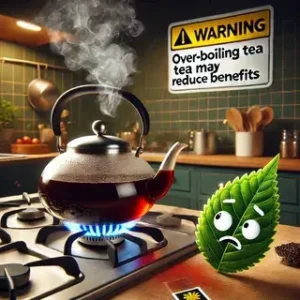I, like the majority of people, start my day with a hot cup of coffee. Coffee is more than simply a beverage; it can be used for business, where you need to beat the rush hour slumber, or for pleasure, where it becomes a daily habit. However, people are more concerned about their health than ever before, thus it seems sensible that we would wonder about the ingredients of our coffee rather than just the beverage itself, particularly in regards to espresso additions.
Is it safe to use? Or does the coffee you purchased from Dunkin’ Donuts contain any toxins? Here, we’ll examine the components of Dunkin’ Doughnuts coffee and other goods, look into whether any harmful elements are present, and offer helpful advice for when you’re purchasing a new cup of coffee.
What Are Additives in Coffee?
First things first, though, what do we mean when we ask whether Dunkin’ Donuts employs any kind of additives? In the context of the coffee industry, “additive” refers to extra ingredients that enhance the coffee’s sensory qualities, such as its flavor, appearance, or longevity. This phrase can be used to describe a wide range of items, including colorants, sweeteners, flavor enhancers, and preservatives. Not all of the chemicals have the same impact, though some are meant to enhance the coffee’s flavor, shelf life, or appearance.
Since some of these ingredients have been linked to health problems, you and I might wonder if the other coffee shops we enjoy employ them in their beverages as well.
Dunkin’ Donuts: The Basics of Their Brewed Coffee
Dunkin’ Donuts is undeniably one of the most beloved coffee brands in America today. It all starts with the brewed coffee – a strong brewed coffee, made solely from 100% Arabica beans, very popular among the customers. As such, this brand has focused on serving a hot cup of coffee. However, are there any harmful ingredients present in this java?
Let’s break down the ingredients typically found in Dunkin’ Donuts brewed coffee:
Ingredients in Dunkin’ Brewed Coffee:
- 100% Arabica Coffee Beans: Dunkin’ uses high-quality Arabica beans, which are known for their smoother, less acidic flavor compared to Robusta beans.
- Water: The second essential component of their brewed coffee is water.
That’s it! According to Dunkin’ Doughnuts, there are no artificial additives, flavorings, or preservatives in their brewed coffee. For those looking for pure coffee, this is a wonderful reprieve. However, this isn’t the case for several of the other coffee beverages on the menu.
Does Dunkin’ Donuts Use Harmful Additives in Their Brewed Coffee?
Now that we know the basic ingredients in Dunkin’ Donuts’ brewed coffee, let’s take a closer look at whether or not these ingredients — or other additives in their menu items — could be harmful.
Official Stance on Additives
In actuality, Dunkin Doughnuts has made no secret of its dedication to using premium ingredients. No artificial flavorings, additions, or preservatives are added to the brewed coffee. So you’re just consuming a natural beverage if you want a typical brewed coffee.
Nonetheless, it is worth mentioning that apart from the regular brewed coffee, Dunkin’ Donuts has a wide range of coffee drinks that includes iced coffees, flavored coffees, and ready-to-drink bottled versions as well. Above all, such drinks may include extra elements and sandy, such as:
- Sugar and Artificial Sweeteners: To improve the taste of their beverages, Dunkin’ Donuts provides a variety of syrups and sweeteners, some of which may be artificial (such as sucralose or aspartame).
- Flavored Syrups: Syrups like vanilla, caramel, or hazelnut may be used for iced coffees or lattes; these syrups frequently include artificial flavorings and sweeteners.
- Milk and Creamers: Although creamers, particularly non-dairy types, may contain thickeners, stabilizers, and artificial flavors, milk is a natural addition.
- Whipped Toppings: Whipped cream and other pre-made toppings may include artificial stabilizers or emulsifiers.
Are These Additives Harmful?
The issue with additives is not always whether they are present, but rather whether they are bad for your health. A closer look at some of the most popular additives found in other Dunkin’ Doughnuts menu items is provided below:
- Artificial Sweeteners: While the FDA and other regulatory bodies have determined that artificial sweeteners like aspartame and sucralose are safe when used in moderation, studies have indicated that excessive consumption of these substances may have adverse health effects.
- Flavoring Syrups: Artificial flavors and colors are present in a large number of the flavoring syrups used in Dunkin’ Doughnuts beverages. Despite the FDA’s recognition of these compounds’ safety, there is continuous discussion on whether or not long-term use of them is actually risk-free.
- Creamers and Non-Dairy Products: Trans fats and hydrogenated oils, which are known to raise the risk of heart disease, are frequently found in non-dairy creamers. Furthermore, some creamers include ingredients like propylene glycol, a clump-preventing agent that is generally thought to be harmless in modest doses but may upset some people’s stomachs.
- Whipped Toppings: Preservatives, artificial flavoring, and hydrogenated oils are present in the majority of commercial whipped toppings. In moderation, these aren’t always harmful, but frequent consumption may lead to an unhealthy diet.
Are Dunkin’ Donuts’ Additives Safe?
The FDA and other regulatory bodies have approved the ingredients used in Dunkin’ Doughnuts products, as is the case with the majority of commercial food and beverage franchises. In the levels usually consumed, these additives—which include flavors, sweeteners, and preservatives—are generally regarded as harmless. There are a few exclusions and things to think about, though:
- Artificial Sweeteners: Although the FDA considers them to be healthy, some research indicates that overindulgence may be connected to health issues like headaches, weight gain, and insulin resistance.
- Hydrogenated Oils and Trans Fats: These are known to boost the risk of cardiovascular disease and raise harmful cholesterol levels. However, the majority of contemporary coffee shops—including Dunkin’—are gradually replacing trans fats with healthier substitutes.
- Flavors and Colors: While artificial flavors and colors are thought to be harmless in controlled amounts, they have been linked to allergic reactions and other health issues.
How to Make Healthier Choices at Dunkin’ Donuts
If you’re concerned about additives but still want to enjoy your coffee at Dunkin’ Donuts, here are some tips for making healthier choices:
- Stick to Brewed Coffee: Plain-brewed coffee is the ideal choice if you want the most straightforward and uncluttered option. Arabica coffee beans and water are its only ingredients.
- Avoid Pre-Sweetened Beverages: Order your coffee unsweetened and, if necessary, add natural sweeteners like honey or raw sugar to avoid artificial sweeteners and added sugars.
- Opt for Dairy or Plant-Based Milk: Oat milk, almond milk, and soy milk are among the milk options that Dunkin’ Donuts provides; they are typically healthier substitutes for conventional creamers.
- Customize Your Drink: Try ordering a standard coffee and adding a tiny bit of natural flavoring, such as cinnamon or vanilla extract, if you want flavored coffee.
People Also Ask:
1. Does Dunkin’ Donuts use preservatives in their coffee?
The coffee that Dunkin’ Doughnuts brews is free of preservatives. To increase shelf life, preservatives could be added to their flavored drinks, syrups, and creamers.
2. Are Dunkin’ Donuts syrups unhealthy?
Added sugars and artificial substances may be present in Dunkin’ Doughnuts syrups, especially the flavored ones. High-sugar syrups are safe to consume in moderation, but frequent use can lead to weight gain and other health problems.
3. Does Dunkin’ Donuts offer organic coffee?
Dunkin’ Donuts does not currently sell coffee that is brewed entirely organically. They do, however, provide coffee beans that are sourced ethically and are dedicated to quality; their brewed coffee is made entirely of Arabica beans.
4. What chemicals are in Dunkin’ Donuts iced coffee?
Depending on the exact drink you order, Dunkin’ Donuts iced coffee may contain flavorings, sweeteners, and preservatives. Additionally, certain iced coffee beverages could include chemically added creamers and artificial sweeteners.
Conclusion: Is Dunkin’ Donuts Coffee Safe?
In conclusion, there are no artificial addition chemicals or preservatives in Dunkin’ Donuts brewed coffee. For individuals who prefer a straightforward and organic cup of coffee, Dunkin’ brewed coffee is of high quality. However, if you consume flavored drinks like iced coffee or flavored creamers, some of them can contain artificial coloring, chemicals, or sweeteners that aren’t good for your health-conscious diet in other situations.
You can continue to enjoy Dunkin’ Doughnuts coffee while abiding by the health rules by making a few changes and wise decisions. Consumption and achievable results are crucial. Therefore, whether you have a plain cup of coffee or a sweet iced latte, everything that is currently accessible gives you the opportunity to make the healthiest choice possible while staying within all realistic limitations.
FAQ Section:
1. What’s the healthiest option at Dunkin’ Donuts?
Americanos and plain brewed coffee, which don’t contain any artificial additives or added sugars, are the healthiest options.
2. Does Dunkin’ Donuts use real sugar in their coffee?
Yes, Some of Dunkin’ Doughnuts’ coffee drinks contain actual sugar, but you can always request less or a natural substitute.
3. Are Dunkin’ Donuts creamers vegan?
While many of Dunkin’s classic creamers involve dairy, some of them are plant-based, such as almond or oat milk. If you want a vegan alternative, be sure to look at the ingredients.
4. Is Dunkin’ Donuts coffee organic?
No, Although Dunkin’ Doughnuts does not currently sell organic coffee, they do use 100% Arabica beans that come from sustainable sources.





Howdy! Would you mind if I share your blog with my zynga group? There’s a lot of folks that I think would really enjoy your content. Please let me know. Many thanks
As I web site possessor I believe the content material here is rattling fantastic , appreciate it for your efforts. You should keep it up forever! Best of luck.